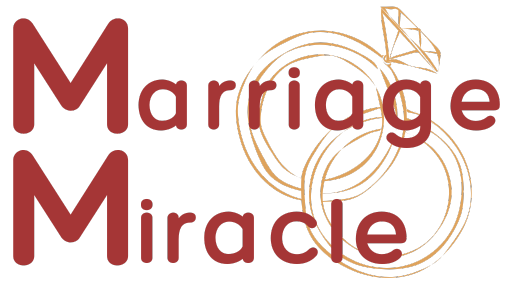What does a fulfilling life partnership look like? How does it work? What makes it successful?
Few of us can answer these questions with clarity. Most of us want a fulfilling life partnership and have little idea of how to create one. Even couples in successful long-term relationships have little insight into why they are successful.
The purpose of this article is to present and explain the primary Relationship Coaching Institute concepts of Vision, Requirements, and Needs, which are critical to a couple becoming successful “Partners for Life.”
As recently as one generation ago, powerful social and economic pressures brought and kept couples together. For thousands of years marriage was a contract to create an economic unit for the purpose of raising children and ensuring the survival of the species.
Our society has evolved to the point where survival is taken for granted, and higher order needs such as love and emotional fulfillment bring couples together. Unfortunately, while we want to be happy, we do not seem to know exactly what we want, or how to get what we want, as the divorce rate attests.
To be successful “Partners for Life” in today’s world you must (1) be clear about who you are and what you want, (2) make a good partner choice aligned with what you want, and (3) learn how to get what you want. Whether or not you are clear about your Vision, Requirements, and Needs, they all must be satisfied.
Your Vision
You have a “Vision” of what you want for your life and your relationship. Like an iceberg, most of your Vision is below the surface waiting to be discovered. Your Vision is a powerful part of you that drives your energy, thoughts, feelings, wants, needs, and choices. You do not “choose” it, and you do not have control over it. Your Vision is an inseparable aspect of who you are, and serves as your inner guidance system driving you toward certain choices and away from other choices.
When your life and relationship is on-track with your Vision you feel content. When an event occurs that is off-track from your Vision, you experience an Issue. You have no more control over this process than you have a choice about your Vision.
For example, if you are unhappy with your career and decide you want to become a lawyer, start law school, and discover you really do not like law; you can try to make yourself like law, but you really have no choice. While you liked the idea of being a lawyer, you were not clear about your Vision and the reality did not fit for you. It is likely that some aspect of being a lawyer fit your Vision, such as helping people or advocating for justice, and you will need to discover another pathway to fulfilling your career Vision.
When you apply the above to relationships you can see that if you want to be happy you must make choices that fit your Vision. If you make a relationship choice and then discover it does not fit your Vision, your only choice is to be unhappy or leave the relationship. For this reason, being clear about your Vision and what you want is critically important. Since you don’t know what you don’t know, it is tempting to believe that the part of the iceberg above the surface is enough to go on… until, like the Titanic, you discover the rest the hard way!
Your Requirements
The basic criteria necessary to fulfill your Vision are your “Requirements.” The test for a Requirement is that the relationship will not work for you if it is missing. Requirements tend to be non-negotiable, and the absence of a single one often results in a failed relationship.
An example of a common Requirement is fidelity, which for many people is non-negotiable; if unmet, the relationship will not work. Requirements commonly involve religion, children, money, lifestyle, values, goals, etc. An unmet requirement is usually an unsolvable problem. The three main choices in dealing with an unsolvable problem in a relationship are: (1) leave the relationship (common); (2) let go of the Requirement (possible but rare); and (3) negotiate livable solutions (possible but difficult, even with professional intervention).
Your Needs
While Requirements are non-negotiable, and tend to be either met or not, Needs can be negotiated, with many possible alternatives.
A Need is easily identified when unmet, because of the resulting “Issue” that is experienced. An Issue is an unmet need. All relationships experience Issues. If Issues are addressed successfully, Needs will be met and the relationship will be successful. The primary reason for relationship conflict is a lack of effective methods for resolving Issues.
Needs are persistent over time. Wants become satiated and change. If a Want is unmet, you can be satisfied with other Wants being met. If a Need is unmet, the resulting Issue cannot be satisfied by any means other than addressing the underlying Need. Wants are the desserts of life, providing pleasure and enjoyment. Needs are the staples of life, providing nutrition for good health. Requirements are akin to the air we breathe and the water we drink, without which we can’t survive for very long.
Following are tips to help strengthen your marriage. But first, check out my products related to marriage health.

In a relationship there are Functional Needs and Emotional Needs:
Functional Needs are the routine events that must occur for your life to work in a manner that fits your Vision. If any of these events do not occur you experience an Issue, but the relationship can still work for you. Functional needs include expectations about activities of daily living such as chores, meals, routines, parenting, handling money, etc. Issues arising from Functional Needs are sometimes judged negatively by the partner who does not experience the Issue, resulting in some classic power struggles such as the toilet seat being left up or down, the cap of the toothpaste being on or off, and drinking from the container or cup.
If any of these events create Issues for you, it is because of who you are- your values, standards, and habits- and how you want to live your life. If any of these events are not important to you it is tempting to discount them as Issues. Unfortunately, this results in discounting the needs of the person experiencing the Issue, thereby damaging the relationship. A successful relationship requires negotiating and meeting each other’s Functional Needs.
Emotional Needs are the ways in which you feel loved. Today, instead of survival, our core reason for seeking a committed relationship is to love and be loved. We seek to get our Emotional Needs met through our partner, and want him or her to accept the love we want to give.
How you feel loved is highly unique and individual. Most of us are only aware of a fraction of our Emotional Needs. Like the iceberg, most of the ways in which we feel loved are below the surface waiting to be discovered and experienced. One of the primary values of a committed life partnership that cannot be found in other relationships is the on-going process of getting to know ourselves and our partner at ever-deepening levels, building mutual trust and growing our capacities for connection, emotional intimacy, and giving and receiving love.
To be successful “Partners For Life,” you must become clear about your Vision, Requirements, and Needs, and learn how to have the relationship you want with your partner.
At Relationship Coaching Institute we have developed simple and highly effective techniques to help you and your partner gain the knowledge and skills needed, and successfully apply them to building the relationship of your dreams together. Please contact us to begin the journey to become true “Partners For Life.”
© Relationship Coaching Institute | All rights reserved | Used with permission
Add on by Waverly J. Hanson…For those of you who have worked with me, or are working with me, some of these ideas may sound familiar to you. Hope you find these articles fromRelationship Coaching Institute helpful.. These are some of the concepts that are included in upcoming programs that will be available to you online. Feel free to contact me at [email protected] for questions and inquiries.

Waverly Hanson
Marriage Counselor & Author
In my personal life, I have had a long successful marriage and have remarried following my husband's death. I have had three sons and helped raise a niece for three years and have seven grandchildren. I have loved spending time with them as they were growing up.
I also enjoy getting together with family and friends, ATVing in the mountains, photography, hiking, and traveling. I also enjoy reading, creating art, decorating, and serving others by volunteering.
Assisting couples in rebuilding their marriages has been so rewarding as I've had the privilege of seeing hundreds of couples reunite and get back to being positively connected to one another.
I also work with personal development and those who want to move forward by making positive improvements such as goal setting, self-care, boundaries, behavioral improvements, overcoming procrastination, conflict management, etc.

